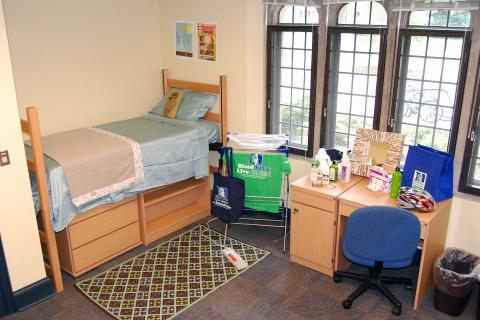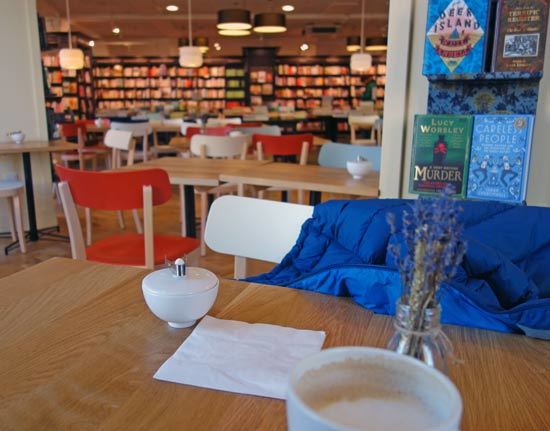Surviving First Days At University – Preparations
August 24, 2019

Going to university is stressful! It is meant to be fun but you are almost certainly away from home – family, friends, automatic laundry and home-cooking – and out on your own for the first time. You now need to look after your own budget, feed yourself and build a new social life, quite apart from the need to perform at a higher academic level and set the agenda for your career.
In this article we will look at what you can do to reduce the pressure of the first few weeks and ensure you establish yourself in a stable, fun, and productive place. Preparing for university can be fun.
A lot of worry comes from not knowing what to expect or do. Fortunately you are not alone and there is a huge amount of information out there to help you.
Connecting with Your University
Your university will have sent you information about your accommodation and course. Double check to make sure you know when the 1st day actually is! There may be some paperwork to do before you get to university such as setting up various logins and identity checks. If you received information by email see if you can identify others on your course and establish contact by Facebook etc. ahead of the first day. Many universities have Facebook groups for halls of residence and courses and you may be able to establish early contact with some of your neighbours and fellow students.
Even if that is not possible a quick bit of googling will show you where the nearest banks, shops, bus stops are and this is all useful advance information.
It is now common for universities to set up experienced 2nd year undergraduates to mentor and guide the 1st year students and help them settle in, but any homework you can do before arrival will be well worth the effort. Your mentor (or university ‘mother’ and ‘father’, as they are sometimes known) might reach out to you by email before the start of the course. Do write back to them and ask them about any aspect of university life or your course.
Student Finances
Money is a concern for many students. Make sure you have a clear idea of your termly budget. Know how much money you can spend each week and make reasonable estimates for rent, food, travel. Plan on keeping a notebook or download an app to record your expenditure so you can clearly see if you actually have enough money this month for that set of headphones, party, clothes you just cannot do without! Try to work in cash rather than debit or credit cards (though you will need these as well) as the physical sight of cash makes its management much more real. If you have not already got cards there are always great deals out there for students so make the most of them. Banks also offer a range of enticing gifts for students, so do investigate each option carefully.
Some of you will be tempted to supplement your income with work but think carefully about whether this is absolutely necessary or not. It will have an impact on your academic performance and after all – that is why you have gone to university in the first place.

Packing for University
Think about what you need to take with you in terms of clothes, technology (laptop, music etc), stationery. It will depend on your means of transport, but bear in mind it will need to be taken backward and forward at least each year and in some places each term. Do not take too much stuff! However, do make yourself comfortable – your surroundings contribute much to your state of mind so do think about taking photographs, favourite cushion, fairy lights, plants, cuddly toys as well as kettle, mugs and other comforts.
Remember that Fresher’s Fairs will often have poster sales where you can buy wall art to brighten up your room. Some Clubs and Societies will also offer free posters or postcards. There is a general packing list that I put together which you can adapt for your circumstances.
Feeding Yourself
One of the biggest shocks of student life is the realisation that food is no longer provided for you! Some 1st years may be fully catered for but it is still worth spending a bit of time developing a few cooking skills before setting off for university. While some students will perfect their pasta bake and live off it for a term at a time it is better to have repertoire of say 10 easy to prepare, quick to cook meals that you are confident to produce. Plan on cooking at least double portions and put the second in fridge/freezer (clearly marked!) to eat later. Where possible, look to take turns in cooking for several housemates/neighbours as this has a huge economy of scale and is really sociable. However, work schedules often make this difficult to achieve more than a few times per week.
Often students who cook well, or even bake (chocolate brownies especially) become very popular and tend go gain an instant army of friends and acquaintances. Choose some easy to cook recipes and start perfecting those culinary skills!

Pre-Course Reading List
If you have been given a pre-course reading list – read it! Many will not, but being a little ahead of the game will be a massive boost to your confidence. Where there are expensive books on your list wait until getting to university before buying them. Many will be available in the library and 2nd years will let you know which ones you really need. If you want to purchase try them and keep the costs down by seeking second hand versions on eBay/Amazon. Second and third-year students might have old copies which they are not using. Electronic books on Kindle are also useful, less expensive options.
Most university towns will have a charity book store with many copies of course books available to buy much cheaper than new costs. Some bookshops also double up as cosy cafes, providing a perfect space to read, study, and enjoy a tasty snack!
SOCIETY
SCHOOLS
UNIVERSITIES
ABOUT THIS BLOG
It is said that the only thing permanent is change. In these blog posts I reflect on how schools and universities transform education by inventing social trends and then embracing them whilst breaking with the past.
Educational Strategists & Advisers on UK Secondary and Higher Education
Tel: +44 1865 517 050
Mob: +44 7939 007 428
Email: office@suhoviy.com
EXPERT CONSULTATION
Home
Independent Schools
Higher Education
Personal Statement
Partnerships for Ukraine
Read the Blog
Contact
Company Registered in England No.: 13282716 | Registered Office: 71-75 Shelton Street, London, WC2H 9JQ